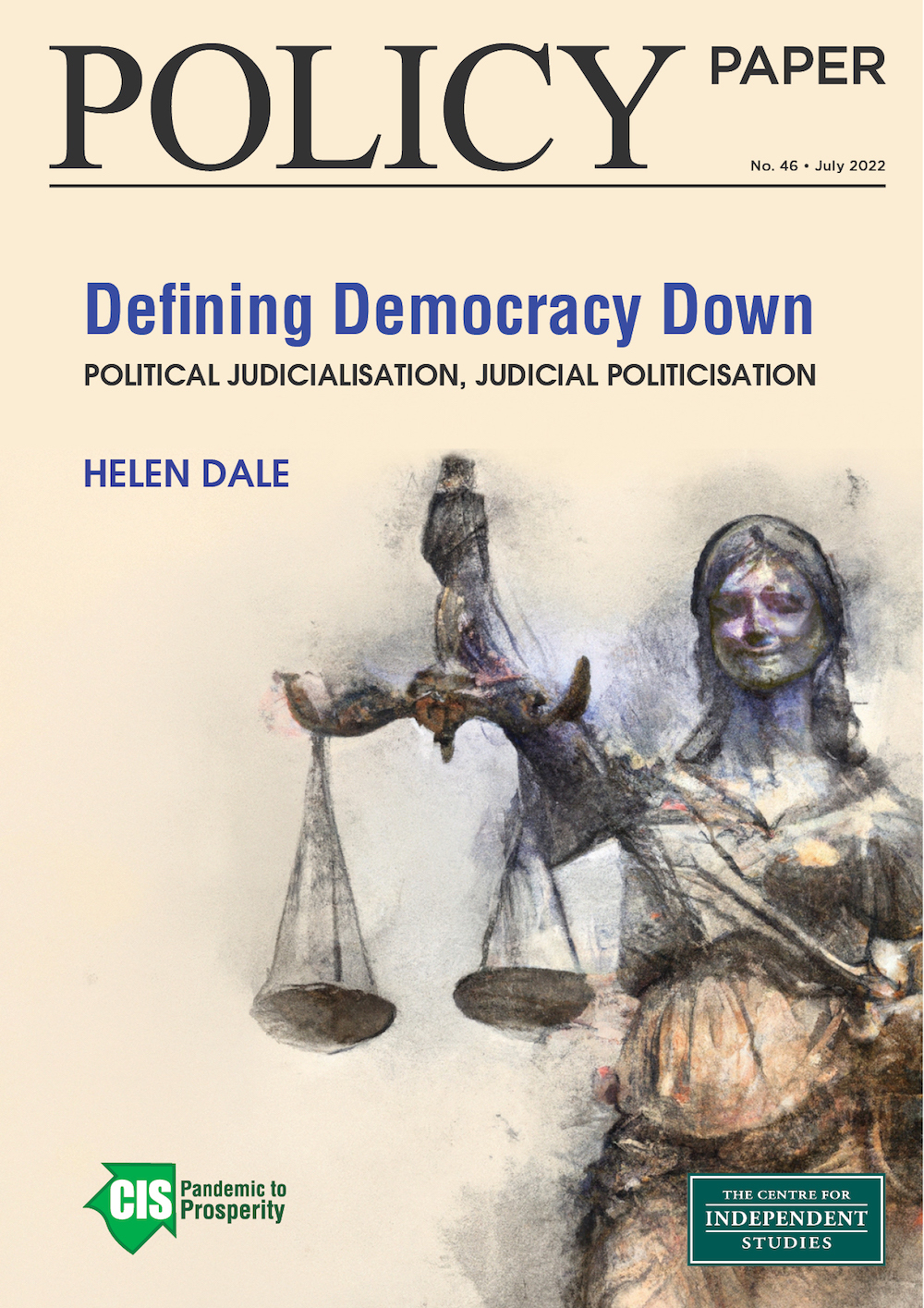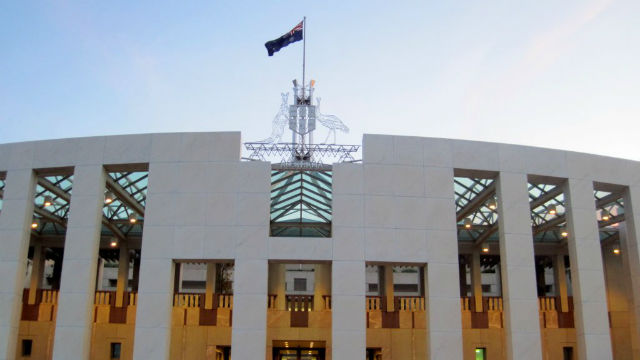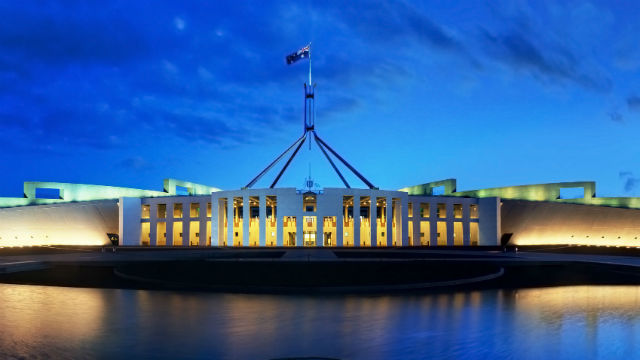

This paper outlines how judicial politicisation and political judicialisation are undermining democracy.
Political Judicialisation, Judicial Politicisation: Executive Summary
The recent overruling of Roe v. Wade by the Supreme Court of the United States (SCOTUS) has highlighted differences between the United States and the UK and Australia, where abortion is a matter for parliaments, not the courts. It has also drawn attention to the politicisation of the US judiciary, where appointments to superior and appellate courts are used to further political aims while proper legislative fora such as Congress are sidelined.
In this paper, legal commentator Helen Dale puts these issues in comparative perspective, beginning with the United States and moving on to the UK, before distilling some lessons for Australia.
She argues that the attempt to protect human rights and civil liberties as part of entrenched constitutions — as in the US Bill of Rights — is illiberal, anti-democratic, and leads to a politicised judiciary and ineffective legislature. She describes how in the UK, advocates of various forms of entrenchment have sought to bypass the UK’s legislature by empowering international courts, most notably the European Court of Justice and the European Court of Human rights.
Nonetheless, the appointments processes for senior judges in the UK remain stable and unpolitical in a way they are not in the US.
Australia famously does not have an entrenched bill of rights, and as a result has largely avoided the politicisation of its judges and courts. High Court appointment processes are uncontroversial and apolitical. Nevertheless, the emotive appeal of “rights talk” presents real challenges to parliamentary sovereignty and legislative scrutiny.
Defining Democracy Down: Political Judicialisation, Judicial Politicisation
When I learnt that a Supreme Court of the United States (SCOTUS) judgment — on abortion, no less — had leaked, I was stunned. Partly, this was because my first period of legal practice was as associate (‘law clerk’) to a Queensland Supreme Court justice. I tried to imagine my (now late) judge’s reaction. ‘Hit the roof’ came closest. Associate roles are few, so the ex-associate bush telegraph went into overdrive as we discussed how such an event was even possible.
People scratched around looking for similar leaks in our various (UK and Commonwealth) countries’ legal histories, returning empty-handed. Although leaking has happened before in US legal history, no leak has been quite so egregious (consisting of an entire draft judgment).[1] This increased our sense that the USA’s judicial wheels were falling off.
As for the substantive issue — abortion — it’s one of those areas where American behaviour baffles both Brits and Australians, and not only because we’re inclined to shake our heads at ‘Godbothering Yanks’. Across the Commonwealth — but especially in the UK and Australia — we agree on a crucial point: abortion is a matter for parliament, not the courts.
The US’s abortion travails are often held up locally as an example not only of what not to do, but as indicative of a disease from which that unhappy country suffers badly, to wit: the politicisation of the judiciary. In other words, the courts are used to further political aims, while proper legislative fora such as Congress are in crucial respects neutered.[2]
Thanks to the circus surrounding Brett Kavanaugh’s confirmation hearing in 2018, even non-lawyers outside the US are aware of the extent to which SCOTUS appointments are politically contested. Democrats and Republicans alike aim to put ‘their people’ on the bench with a view to securing decisions amenable to their beliefs. Last month’s overruling of Roe v Wade[3] is emblematic of this process.[4] Yes, it’s true that presidents from both parties strive to choose what the American Bar Association calls “well qualified” candidates, but it’s equally true that politics sits unhappily under those glowing CVs.
More recently, Tony Blair’s constitutional reforms in the UK — to the House of Lords, judicial appointments, the role of the Lord Chancellor, and the availability of judicial review — have also led to claims that the new UK Supreme Court is becoming politicised. When, in 2019, the UKSC held that the Royal Prerogative was justiciable in what appears to be all circumstances,[5] I was not alone in thinking that Britain, too, was on its way to developing a SCOTUS of its own, complete with public confirmation hearings and all the rest.
Meanwhile, in June this year, Australia’s High Court held that a ministerial attempt to remove a suspected terrorist’s Australian citizenship pursuant to s 36B of the Australian Citizenship Act 2007 (Cth) was an improper exercise of judicial power under Chapter III of the Constitution. That is, it granted Ministers the exclusively judicial function of adjudging and punishing criminal guilt, something the Constitution reserves to the courts.[6]
This, too, has been viewed as judicial activism — if not direct political intervention — coming as it did on the back of Love v Commonwealth, where the High Court held that it was not possible for persons of Aboriginal descent to be classified as aliens under section 51 (xix), even when they were not Australian citizens.[7]
In what follows, I put the issue of judicial independence and judicial politicisation in comparative perspective. I’ll start with some general observations, then turn to the United States and move on to the UK before distilling some lessons — and perhaps warnings — for Australia. If I have a core claim, it is this: the attempt to protect human rights and civil liberties as part of entrenched constitutions is illiberal and anti-democratic. In addition, it leads to a politicised judiciary and ineffective legislature.
Political judicialisation
Traditionally, judicial politicisation is seen to stem from methods of judicial appointment and organisation. That is, countries where judges undergo public confirmation hearings — or where judges are elected (widespread for US state courts) — have the most difficulty.
A directly-elected executive involving itself in the selection and appointment of judges to superior and appellate courts is inevitably public and invites contestation.[8] It’s reasonable to expect media commentators and ordinary members of the public alike to read the judicial tealeaves with a view to working out if President X’s selection of Judge Y will mean Judge Y is ‘the president’s man’. Historic sexual offences allegations aside, this contributed in no small part to the fraught Kavanaugh confirmation hearing. Likewise, where judges are elected — even more so when those elections are party-based — political concerns naturally rise to top-of-mind.
However, far more important when it comes to politicisation of the judiciary is a process best described as political judicialisation, where entrenched constitutions, wide powers of judicial review, or accession to international instruments confer (or are allowed to confer) the ability to ‘do politics’ on judges. The judicialisation of politics is temporally prior to (and more basic than) any regime of judicial appointments. Typically, it involves the transfer of decisions properly in elected legislatures’ purview to the courts and depends on what lawyers call ‘rights-talk’.
That is, human rights or broader bills of rights claims are construed as free-standing, existing in a state of suspended animation prior to state formation, and therefore not beholden to traditional forms of electoral bargaining. They often form part of a written constitution that wasn’t enacted sensu stricto and may thus be a given country’s basic law, or grundnorm. This is most obviously true in the United States.
Many of the rights in question are procedural and may also be evidentiary in scope. Australia’s Chapter III, constraining what entities are considered able to exercise judicial power, is at once procedural and structural, so also of this type. However, substantive rights — to abortion, or to own a firearm, or to equal treatment — inevitably rub up against politics or form part of it.
In my view, ‘we’re worried that any government enacting right [x] into law will get voted out and we’ll lose our chance’ is not a good reason to claim legal authority by stealth. As unpleasant as this may sound to rights claimants, it’s important to remember substantive rights are held against our fellow creatures, confer authority, and therefore require electoral consent. Rights must be negotiable or political compromise is impossible. The best way to achieve consent and compromise is by parliamentary vote.
In recent years, free-standing, substantive human rights claims have been used to avoid political negotiation and democratic bargaining, and there has been real unwillingness to advance policy preferences through majoritarian decision-making institutions like the House of Commons. In Britain, this behaviour was a feature of the campaign for transgender rights, for example, with its insistence that trans rights were ‘not up for debate’. Quietly petitioning ministers and changing policies within the NHS allowed lobbyists to make huge strides without many people noticing, although it is fair to say this approach has now thoroughly unravelled.[9]
The problem with ‘rights’ untrammelled by politics means activists for a given cause need only convince courts of their claim, whereupon it will be enforced in law and policy without regard to democratic views or social consequences.
A standard response to this reality, especially in the US, has been persistent, bipartisan attempts to stack the bench with politically amenable judges. Outside the US — especially when it comes to disputes involving international courts — entire sovereign states have simply left the relevant jurisdiction. Brexit is the most famous example of this. However, it is also possible to bleed international law to death by dint of a thousand legislative cuts, as Australia has done with the Refugee Convention.[10]
Of course, while democratic legitimacy and electoral consent are important, they can be taken too far. Thanks to the ham-fisted insertion[11] into Ireland’s constitution of substantive rights and the mandated use of referendums to change it, the population of that unhappy island has twice held abortion referendums, these bisected by a separate referendum on same-sex marriage. When civil libertarians object to ‘voting on other people’s rights’, this is what they mean.
Judicial Politicisation in the United States
Whether judges finish up “politicians in robes”[12] is thus a function of constitutional architecture as much as judicial appointment processes. Indeed, in the US, appointment processes and their politicisation flow naturally from the status of superior courts within that country’s founding documents. In America, not only is ‘rights-talk’ not new, it is also normal. The idea that rights pre-exist states is foundational in American law[13], while at least since Marbury v Madison[14] SCOTUS has had powers of constitutional oversight.
The US Bill of Rights mixes substantive and procedural rights in an ad hoc fashion. By contrast, people in Britain and Australia expect their respective parliaments to enact relevant legislation with respect to, say, firearms ownership or the legality of capital punishment, while procedural rights such as trial by jury or warrant requirements form part of the ordinary common law and rules of evidence. The latter is often a mixture of statute and judge-made law, with parliament being supreme. In the US, courts govern all these rights at the highest level.
Abortion is nowhere mentioned in the Bill of Rights, but it nonetheless remains true that protecting abortion access using the Ninth Amendment — which very deliberately does not name any of its unenumerated rights — makes strategic sense because it is easy to adapt the reasoning used to defend rights named in specific amendments of their own.[15] It becomes difficult, as society changes, to stop new rights being bolted onto existing rights, all underwritten, of course, by politicians shoving politics at the courts and neutering Congress.
When asked, ‘who decides?’ Americans have long been more comfortable answering, ‘the courts’ rather than ‘people you can get rid of — elected members of the legislature’ than Britons or Australians. Once one entrenched substantive right has been magicked into existence in this way, others soon follow.
That makes superior and appellate courts both very powerful and a natural locus for political disputes. The recent ruling in Dobbs v. Jackson Women’s Health Organization,[16] wherein “the authority to regulate abortion is returned to the people and their elected representatives,” has proven so shocking to Americans in part because they’ve spent so long defining democracy down, they don’t quite know what to do when it expands upwards.
The line dividing substantive and procedural rights can, of course, be porous. The right to an abortion or to own a gun is clearly substantive: both are instances of what political scientist Ran Hirshl calls ‘pure politics’.[17] The right to trial by jury, by contrast, is clearly procedural. Equality before the law, however, traverses both sides of the line. It’s a procedural right within a country’s borders. The basis of citizenship and to some extent permanent residency or indefinite leave to remain is derived from the presence of national borders and depends on the existence of the nation state.
Outside the nation state, however, it is substantive: should non-citizens and non-residents get the same basket of rights as citizens and residents? This is a policy question and properly a matter for the electorate when it chooses between different political parties based on their stated immigration and refugee policies. Those lawyers with an expansive view of rights, however, see non-citizen rights claims — especially when applied to putative refugees — as things to be protected on par with those of citizens: hence the slogan, ‘no-one is illegal’. This often forms part of a broader counter-majoritarian impulse.
The US Constitution’s hospitality to entrenched politics has had a huge effect on that country’s judicial and legal culture, a culture now impossible to change without first draining substantive moral claims out of the Constitution. Short of another revolution or civil war, this is not going to happen: Americans are stuck with it. There have, however, been significant shifts in the past in response to shortcomings in judicial appointment processes.
In many US state courts, judges are elected. Yes, this means prospective judicial officers dusting off rosettes, reaching for loudspeakers, and making stump speeches. Often, the process requires competition in a primary election for party nomination before running in the election itself. The judicial electoral system is also large and pervasive. Of the roughly 100 million cases heard in state and local courts every year, 97 per cent are heard by state judges, more than half of whom are elected.[18]
What is less well-known is that judicial elections were an improvement on what went before. In the early 19th century, most judges were appointed by local governors or mayors. Appointments were based on cronyism, not merit. The switch to direct election meant two things: state judges were no longer corrupt, but those elected judges are also no more (and no less) politically biased in their rulings than appointed judges in federal courts.[19] Partisan judges simply form part of America’s institutional furniture. And partisanship holds constant regardless of selection method.
Equal partisanship aside, we should not pretend this improvement was one of unalloyed sweetness and light. In a detailed comparison of judicial appointments across the globe, English barrister Barrie Nathan describes the following incident:
In April 2008 there was a campaign for election as a judge in Wisconsin. One candidate, a judge in a small town, alleged that the only black judge on the State Supreme Court had, when he was still in practice as a lawyer, helped to get a rapist released. The allegation was false. The local judge secured 51 per cent of the vote and was elected in place of the black judge.[20]
In the United Kingdom
Consistent with the doctrine of parliamentary sovereignty, it is not possible to entrench rights in the UK. Any proposed ‘British Bill of Rights’ will, like the existing Human Rights Act 1998 (UK), be an ordinary act of parliament capable of repeal by simple majority in the House of Commons. Britain also has a dualist relationship to international law: treaties only apply if they are incorporated by act of parliament.[21]
For this reason, advocates of varied forms of entrenchment have sought to overwhelm the UK’s legislature by empowering international courts, most famously the European Court of Justice (the EU’s apex court) and the European Court of Human Rights. The use of international treaties in this way undoubtedly deformed the relationship between parliament and the courts, introducing hitherto impermissible interference in the normal operation of parliamentary sovereignty. EU law supremacy over national law, coupled with the UK’s historic tendency to implement EU Directives in minute detail (while blaming the EU and absolving itself of responsibility for the resulting mess) contributed to both the 2016 referendum result and a thumping Conservative majority in December 2019.
As a result, nearly all ECJ power of review has gone. The small component remaining concerns the Northern Ireland Protocol, which even in restricted scope is still the site of significant diplomatic and legal tension, a reminder of what things used to be like.[22] That leaves the European Court of Human Rights (a Council of Europe body), which has some oversight powers vis-a-vis the UK Supreme Court, but whose jurisdictional boundaries are unclear.
At time of writing, there is a serious tussle between the House of Commons, three UK appellate courts, and the European Court of Human Rights over HM Government’s Rwanda policy, which is modelled on Australia’s regime of offshore detention. Unlike the UK’s Supreme Court, which can only make a ‘declaration of incompatibility’ with the Convention, the Strasbourg court has stymied the implementation of a manifesto promise made by a democratically elected government. A plane en route to Rwanda was injuncted and stranded on the tarmac. As matters stand, it is unclear whether this is legally possible.[23]
It is likely to lead to the amendment or perhaps even repeal of the Human Rights Act, representing as it does a dramatic shift from what Jeremy Waldron calls “weak judicial review” to “strong judicial review”. The case for the former — where rights can be overridden by parliament on a case-by-case basis or repealed entire — is at least arguable, as Waldron documents at length.[24] The case for the latter is not, lest one wants to copy the system obtaining in the United States.[25] Writing extra-judicially, Lord Sumption points out that this unhappy situation has emerged precisely because the Strasbourg court is engaging in politics:
Our continued participation in the European Convention on Human Rights therefore means that we have two parallel and potentially conflicting judicial systems for giving effect to human rights: a domestic one which respects the proper limits of the judicial role and the proper claims of democratic politics, and an international one which has little regard for either. Immigration and deportation are sensitive political issues on which there are strong democratic pressures for tighter control. While the present situation subsists, they will be the flashpoints of the future.[26]
Nonetheless, the appointments processes for senior and appellate judges to UK courts are stable and unpolitical in a way they are not in the US. While there is no longer the ‘tap on the shoulder’ of old — where, famously, potential judges were called into a meeting with the Lord Chancellor and not told what it was about[27] — they nonetheless do not have to disclose or be challenged on their politics or approaches to law. They are selected on merit by an independent body and give judgment without fear or favour.
When a UK Supreme Court vacancy arises, an independent selection committee is set up; it consists of representatives from the four Home Nations and two senior judges. The President of the Supreme Court is chair. To be eligible, an individual must either have been a High Court or Court of Appeal (or equivalent) judge for two years or a practicing lawyer for at least 15 years. Because Scotland has a different legal system, and the politics of Northern Ireland are historically complex, appointments are structured so representation from those two Home Nations is assured.
Once a new Justice is nominated, the name is sent to the Lord Chancellor, who in limited circumstances can reject the nomination or invite a reconsideration. Once approved, the Lord Chancellor sends the nomination to the Prime Minister, who in turn forwards the name to the Queen. She makes the appointment on advice. Supreme Court Justices cannot be members of political parties and must be cautious about their charitable involvements, lest their independence be compromised.[28]
Complaints in Britain about the judiciary focus not so much on politics or politicisation as on the Supreme Court’s arrogation of excessive status to itself. There were widespread objections to the House of Lords being transformed into said Supreme Court, ensconced in a fancy building of its own, and the Lord Chancellor losing most of his powers.[29] This disquiet has roots in Tony Blair’s almost insatiable appetite for constitutional meddling, which among other things produced elected mayors, a dysfunctional regime of devolution (‘not quite federalism’), and an upper chamber populated by talentless sinecures. In this context, it’s perhaps worth remembering the Human Rights Act was also a Blairite project.
In Australia
Famously, Australia has an entrenched constitution with no bill of rights. The rights it does protect are scattered throughout the document, procedural, and only operate at the federal level. For this reason, the method of appointing federal judges — by the Governor-General in Council — has remained unchanged since Federation and reflects proposals in the draft constitution bill of 1891.[30] In practice, the Commonwealth Attorney-General enquires widely, including among senior members of the profession and the judiciary.
Apart from a degree of difference in terms of who is consulted — derived from Australia’s federal structure, which informally and now formally requires conferral with state attorneys-general[31] — Australia’s regime resembles the practice in Britain before Blair’s 2005 tinkering.[32]
This is not to say all Australian High Court appointments have been without controversy, most famously that of Lionel Murphy. It was almost certainly ongoing debate around Murphy’s politics and subsequent role on the bench that led Sir Garfield Barwick, in 1995, to recommend the use of a system (once again, moderated by federalism) like that later adopted in the UK.
Barwick argued that a “standing commission, presided over by the appropriate Chief Justice and consisting of senior representatives of the Bar and solicitors, representatives of academic lawyers and of an appropriate section of the general public should replace appointment by the Executive,”[33] worrying that the executive simply had too much choice; something he wanted to constrain.
Left to politicians, the appointments are not always made exclusively upon the professional standing, character and competence of the appointee. At times, political party affiliation, or at least an expected affinity in judgment to the philosophies of the party, form some of the criteria for choice. Sometimes party-political considerations are the dominant reason for it, even to the point of choosing the appointee merely to resolve a possible threat to the leadership.[34]
Compared to the situation in the US, and even that in the UK, High Court appointment processes are uncontroversial and apolitical. The proof of the pudding is in the predictive eating, too: it is not possible, even for seasoned court-watchers, to foresee the way the High Court will rule on any given issue. In the wake of the SCOTUS ruling in Dobbs v. Jackson Women’s Health Organization, Melbourne Law School’s Professor Katy Barnett admitted she “has now given up predictions, because I am invariably wrong,” to the shock and consternation of her US legal interlocutors.[35]
Australia’s appellate courts have remained largely unpolitical because Australia’s constitutional architecture was drafted in such a way that there was no opportunity to ‘do politics’. While Chapter III jealously guards the courts’ judicial power and casts any attempt to make political decisions into outer darkness — sometimes in ways that stymie government intentions — it remains true that not only is abortion a matter for parliament. Politics generally is a matter for parliament.
Judith Brett documents how Australians put immense care into designing their country’s institutional arrangements and electoral system.[36] There may be little beautiful rhetoric in the late 19th-century constitutional debates of Australia’s constitutional Framers — a notable contrast with America’s Founders. There is, however, astonishing attention to detail and a willingness to pinch good things from other countries and civilisations. This was borne of devotion to the ideal of responsible government accountable to parliament, in turn accountable to the electorate — all of them.
While much of Brett’s analysis is concerned with electoral law and how it developed over time, she also notes that where the US favours liberty and rights over democracy and majorities, Australia favours democracy and majorities over liberty and rights. It’s this which means Australia does without entrenched bills of rights and so avoids the politicisation of its judges and courts.
If John Locke is the father of the US Constitution and John Stuart Mill the father of British approaches to governance, then Australia’s dad is Jeremy Bentham, the philosopher who described natural rights as “nonsense upon stilts”. Brett observes that he “rejected the idea of natural or divinely given rights” preceding the establishment of state authority. [37] Bentham argued that rights are legal creations, and without government there are none. Rights, in other words, come from states.
Victoria is something of a special case, with its statutory, unentrenched Charter.[38] Following Waldron and Lord Sumption, I’ve argued here against entrenched rights on the US model, or the judicial attempt to arrogate entrenchment on the back of adherence to an international instrument, as has happened with Strasbourg and the ECtHR. By contrast, unentrenched charters capable of repeal occupy a genuine grey area.
Waldron suggests rights may be protected less well by judicial review than they are by democratic legislatures.[39] This seems to be the case in Victoria, which not only imposed the longest covid lockdowns (on Melbourne) of any major city in the developed world but found its Charter no shield against even imposition of a curfew.[40] During the same period, Victoria Police at one point fired rubber bullets at protesting trade unionists.[41]
Against Waldron is James Allan, who claims (with respect to New Zealand’s unentrenched Bill of Rights Act, enacted in 1990) that what was meant to be a weak charter amenable to both parliamentary repeal and political negotiation has in fact undergone an “inflationary effect” in the hands of judges.[42] It now resembles, he says, the entrenched, US-style models it was deliberately drafted to avoid.
While the final, practical workings of an unentrenched charter or bill of rights elsewhere cannot be predicted based on Victoria’s or New Zealand’s circumstances, in neither case is what has happened desirable.
Concluding comments — and an Australian warning
Avoiding politicisation of the judiciary is at once simple and demanding. The simple part is to heed Waldron’s advice and turn one’s face against entrenched rights claims and strong judicial review. The demanding part is repelling the “emotive appeal and power of rights-talk”.[43]
Recent SCOTUS jurisprudence on abortion buttresses Waldron’s argument. I hope Dobbs serves as a salutary reminder to people who call themselves ‘liberals’ that getting the politics you want out of courts depends on retaining power over judicial appointments. In Australia’s specific situation, I submit any entrenched ‘Voice’ to parliament be resisted for the reasons Waldron provides. This is especially so given — in response to the Uluru Statement from the Heart — the Final Report of the Referendum Council recommended any entrenched Aboriginal and Torres Strait Islander ‘Voice’ be given a monitoring role over Section 51(xxvi), the race power.[44]
It is a great pity Australia’s Constitution contains a race power. It’s a greater pity it was not abolished — along with a poisonous cousin, Section 25 — in the 1967 Referendum. The race power was drafted by racists. It was, in Edmund Barton’s words, “to regulate the affairs of the people of coloured or inferior races who are in the Commonwealth”.[45] There is only one way to use a race power: to be racist. It has become fashionable, of late, to pretend that racist ideas like segregation or separate representation can somehow be repurposed. They cannot. Already, Love v Commonwealth is paddling in dangerous waters.
Australia has compelling reasons to look across the Pacific and see what has happened to the US thanks to entrenched rights protections and strong judicial review. It has proven illiberal and undemocratic. It has turned judicial appointments to the country’s apex court into grim theatre and produced a biased judiciary, then coupled both with a weak and ineffective legislature.
____________________________
Helen Dale is Senior Writer at Law & Liberty. She won the Miles Franklin Award for her first novel, The Hand that Signed the Paper, and read law at Oxford and Edinburgh. The most recent of her three novels, Kingdom of the Wicked, was shortlisted for the Prometheus Prize for science fiction. She writes legal commentary and literary non-fiction for various outlets, including The Spectator, The Australian, Standpoint, and Quillette. She was previously Associate to Justice Peter Dutney of the Queensland Supreme Court. She lives in London.
Endnotes
[1] Bari Weiss, ‘The Shocking Supreme Court Leak’ (Common Sense, 3rd May 2022) <https://www.commonsense.news/p/the-shocking-supreme-court-leak?s=r> accessed 20 June 2022
[2] Christopher DeMuth, ‘Congress Incongruous’ [2015] August Law & Liberty <https://lawliberty.org/forum/congress-incongruous/> accessed 23 June 2022.
[3] 410 U.S. 113 (1973)
[4] 597 U.S. (2022)
[5] R (on the application of Miller) v The Prime Minister [2019] UKSC 41.
[6] Alexander v Minister for Home Affairs [2022] HCA 19.
[7] 270 CLR 152.
[8] Article II, s. 2 of the United States Constitution provides in part that the President ‘shall nominate, and by and with the advice and consent of the Senate, shall appoint … judges of the Supreme Court’.
[9] Sarah Phillimore, ‘Courts shouldn’t ban clinical treatments’ [2021] 18 September The Critic https://thecritic.co.uk/courts-shouldnt-ban-clinical-treatments/ accessed 19 June 2022.
[10] Productivity Commission, ‘Migrant intake into Australia – Report by the Productivity Commission’ (Australian Government, 12 September 2016) <https://www.pc.gov.au/inquiries/completed/migrant-intake#report> accessed 19 June 2022
[11] In 1937, by Éamon de Valera.
[12] Sandra Day O’Connor, in the Rudolf G. Schade lecture on history, ethics and law, Elmhurst College, May 2013. https://www.chicagotribune.com/suburbs/elmhurst/ct-xpm-2013-05-30-chi-retired-justice-warns-against-politicians-in-robes-20130530-story.html accessed 21 June 2022.
[13] “We hold these truths to be self-evident, that all men are created equal, that they are endowed by their Creator with certain unalienable Rights, that among these are Life, Liberty and the pursuit of Happiness”.
[14] 5 U.S. 137 (1803).
[15] “The enumeration in the Constitution, of certain rights, shall not be construed to deny or disparage others retained by the people”.
[16] 597 U.S. (2022)
[17] Ran Hirshl, ‘The Judicialisation of Politics’ in Robert E Goodin (ed), The Oxford Handbook of Political Science (Oxford University Press 2013).
[18] ‘What Makes Judicial Elections Unique?’ (2001) 34 Loyola of Los Angeles Law Review 1369 at 1373.
[19] M DeBow, D Brey, E Kaardal, J Soroko, F Strickland, and MB Wallace (2003) ‘The Case for Partisan Judicial Elections’ The Federalist http://www.fed-soc.org/publications/detail/the-case- for-partisan-judicial-elections accessed 19 June 2022.
[20] Barrie Lawrence Nathan, ‘Who Judges Who Judges — Judicial Appointments and Disappointments: A Comparative Study of Judicial Appointments with Particular Reference to England and Wales’ (2013) 8 J Comp L 405 at 435.
[21] Steven Barrett, ‘Raab’s Bill of Rights unpicks Blair’s messy reforms’ [2022] 25 June The Spectator <https://www.spectator.co.uk/article/what-does-raab-s-bill-of-rights-mean-for-human-rights-> accessed 23 June 2022
[22] Allister (James Hugh) et al’s Application and In the matter of the Protocol [2021] NIQB 64.
[23] Richard Ekins, John Finnis, Sir Stephen Laws, Simon Murray, Yuan Yi Zhu, ‘The Strasbourg court’s disgraceful Rwanda intervention’ (The Law Society Gazette, 15 June 2022) <https://www.lawgazette.co.uk/commentary-and-opinion/the-strasbourg-courts-disgraceful-rwanda-intervention/5112790.article> accessed 15 June 2022
[24] Jeremy Waldron, ‘Denouncing Dobbs and Opposing Judicial Review’ [SSRN 10 June 2022] https://papers.ssrn.com/sol3/papers.cfm?abstract_id=4144889 accessed 25 June 2022.
[25] Jeremy Waldron, ‘The Core of the Case Against Judicial Review’ [2006] 116 (6) Yale Law Journal 1346
[26] Lord Sumption, ’Does one anonymous Strasbourg judge know better than three UK courts?’ (The Times, 19 June) <https://www.thetimes.co.uk/article/anonymous-strasbourg-judge-uk-courts-comment-rwanda-flights-vvszw86z0> accessed 24 June 2022
[27] Barrie Lawrence Nathan, ‘Who Judges Who Judges — Judicial Appointments and Disappointments: A Comparative Study of Judicial Appointments with Particular Reference to England and Wales’ (2013) 8 J Comp L 405 at 408.
[28] In Re Pinochet [1999] 1 All ER 577.
[29] Joshua Rozenberg, ‘Turning Lord Chancellor into just another politician was a mistake’ (Law Society Gazette, 20 May 2013) <https://www.lawgazette.co.uk/analysis/turning-lord-chancellor-into-just-another-politician-was-a-mistake/70871.article> accessed 27 June 2022
[30] Clause 3 of chapter 3 of the draft Bill provides in part: “The Judges of the Supreme Court and of the other Courts of the Commonwealth shall be appointed … by the Governor-General by and with the advice of the Federal executive Council.”
[31] Section 6, High Court of Australia Act 1979 (Cth).
[32] Constitutional Reform Act 2005 (UK).
[33] Garfield Barwick, ‘The State of the Australian Judicature’ [1977] 51 Australian Law Journal 480 at 494.
[34] Garfield Barwick, Radical Tory (Federation Press 1995) 230.
[35] On Twitter, 25 June 2022 < https://twitter.com/DrKatyBarnett/status/1540494301502640128?s=20&t=yYcBGbOWQ_K1JS-zUhDN9g> accessed 28 June 2022.
[36] Judith Brett, From Secret Ballot to Democracy Sausage: How Australia Got Compulsory Voting (Text Publishing Company Melbourne 2019).
[37] Above, at 6.
[38] Charter of Human Rights and Responsibilities Act 2006 (Vic).
[39] Jeremy Waldron, ‘The Core of the Case Against Judicial Review’ [2006] 116 (6) Yale Law Journal 1346 at 1384.
[40] Loielo v Giles [2020] VSC 722.
[41] Emily Woods, ‘Riot police use pepper spray and rubber bullets as Melbourne CFMEU protest turns ugly’ (Channel 7 News Australia 20 September 2021) <https://7news.com.au/lifestyle/health-wellbeing/construction-workers-protest-at-cfmeu-c-4014364> accessed 26 June 2022
[42] James Allan, ‘Take Heed Australia — A Statutory Bill of Rights and its Inflationary Effect’ [2001] 6(2) Deakin Law Review 322
[43] Above, n 42.
[44] Referendum Council, Final Report of the Referendum Council (Commonwealth of Australia 30 June 2017) accessed 20 June 2022.
[45] Official Record of the Debates of the National Australasian Convention. (Melbourne 27 January 1898) 228–9.









